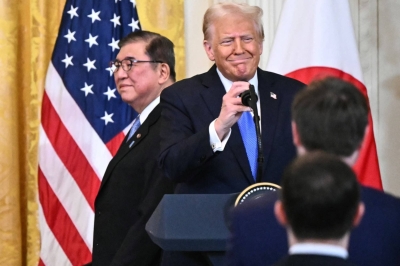In his 2011 State of the Union Address, President Barack Obama said the United States needed to "out-innovate, out-educate, and out-build the rest of the world" to remain competitive and "win the future." In his short history, though, Obama has not proved very adept at turning brave words into action.
Is the U.S. finished as an economic superpower? Its optimists assert that the U.S. retains critical cutting-edge advantages. Adam Segal, senior fellow at the Council on Foreign Relations, has written a thoughtful book asserting that American innovation can overcome the challenges from rapidly growing Asia. He draws a distinction between what he calls, "the hardware of innovation" — meaning the amount of spending on research and development, the number of engineers and scientists, patents and publications — and the "software," which he terms as "the political, cultural and social institutions and understandings that help move ideas from lab to marketplace."
Segal acknowledges that China is spending vast sums and will eventually outspend the U.S. in research and development, but believes that the U.S. still leads as an innovator, able to make "the discovery that, under the right conditions, can spark the creation of a whole new industry and drive economic growth."


















With your current subscription plan you can comment on stories. However, before writing your first comment, please create a display name in the Profile section of your subscriber account page.